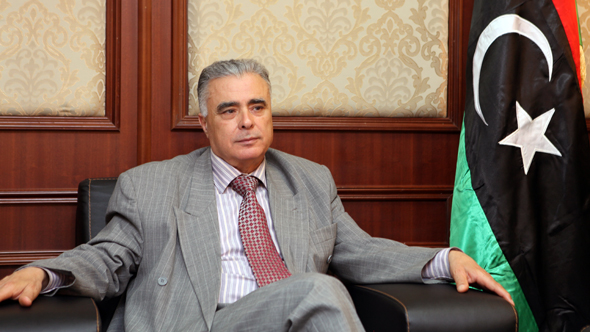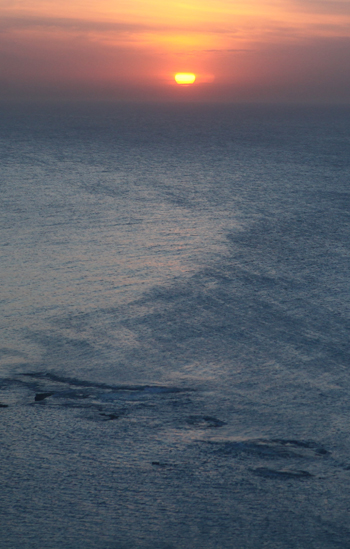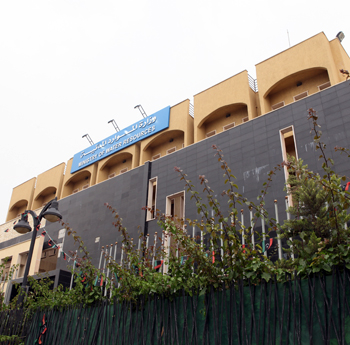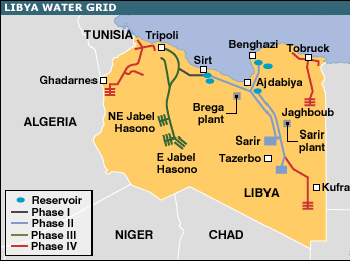Water in Libya: Major Investment Projects
Eng. El-Hadi S. Hensher, Minister of Water Resources of Libya
In regards to investments, we set out budget according to the plans and strategies of these institutions that are under our authorities. In this year, a budget of 268 million Libyan dinars was set and divided to the related sectors, 20 million Libyan dinars for ministry’s council, 19 million Libyan dinars for the public body for waste, 37 million Libyan dinars for the public company for water and sewerage and 156 million Libyan dinars for the management responsible for executing and managing the manmade river project.
Interview with Eng. El-Hadi S. Hensher, Minister of Water Resources of Libya

The first question is regarding investments and projects, what sort of projects are you planning to this year and in the next year, and what is the size of investments are you are going to invest?
First, I want to thank Marcopolis for giving us this chance, and I think this is the second press interview I do after I became the minister of water resources, I also hope you have a good stay in Libya, since you are now in a secure land (Alhamdulillah), you can move around freely and without any problems – as opposed to what is spread by media. Now, few incidents could take place because of certain circumstances or because of few outlaws, or reckless people just like it happens in major countries such as the United States, Russia and all the other countries. However, that doesn’t mean that this country isn’t safe, this country is secure and the proof for that is your presence among us in this place.
This newly established ministry that was formed with the caretaker government, it includes the public body for water resources, then there is a management responsible for executing and managing the manmade river project, also it includes the public company for desalination of water, and during the past month the public company for water and sewerage was merged with us.
So, now we believe that we achieved the goal we wanted, which is to have all the water sectors under one institution, so we can have a good management for water resources according to the standards of the complete management concept, which involves sources and production, then the distribution, then processing the water and at the end comes the recycling phase. Thus everything related to water is now under one institution run by a good management with the help of Allah.
Now we are in the middle of adding an additional budget of 500 million Libyan dinars for the river project by the help of Allah.
In regards to investments, we set out budget according to the plans and strategies of these institutions that are under our authorities. In this year, a budget of 268 million Libyan dinars was set and divided to the related sectors, 20 million Libyan dinars for ministry’s council, 19 million Libyan dinars for the public body for waste, 37 million Libyan dinars for the public company for water and sewerage and 156 million Libyan dinars for the management responsible for executing and managing the manmade river project.
In addition to all that, the public company for water and sewerage was added to us with an estimated budget of 200 million Libyan dinars for this year, added to a 350 million Libyan dinars that will be used to implement projects, and this is the budget for this year of 2013.
Now we are in the middle of adding an additional budget of 500 million Libyan dinars for the river project by the help of Allah. So we have a good financial coverage, and so we call the companies who signed contracts with us to come and start implementing the projects. We assure that the dues of these companies will be paid, and that we will protect them within a safe area, all what we need now is that the companies should come here and continue with their job. A lot of foreign companies are already here, and many local ones started their businesses, so we are already investing what was assigned with this budget by the will of Allah.
What is the outlook for water consumption in Libya? How much is the growth of consumption of water in Libya for the people whether in agriculture and industry?
Of course, the estimation for growth will be tied to the increase of population. As for agriculture, it is known that things weren’t planed for in the past, it was more about exhausting water supplies which will work on stopping it and set things straight when it comes to water. As for the industry, it all rotates around the needs of the industrial facilities which are usually small. And by Allah’s will, one of the ministry’s top priorities is to develop the previews strategy that was set for the time between 2000 and 2025, so we will review that strategy and set a new national strategy which is focused on the water resources and how to use it in the most efficient way in order to maintain water for the coming generations.
We are also setting emergency plans and suggest alternatives when it comes to water, and in the case of a failure in any of the alternatives, we will find a suitable solution.
Our main water source is from well drilling and moving it through the manmade river along with water desalination stations. So, by the will of Allah we will set all the alternatives ready in case we face any problem.
We do have a manmade river that opens the way for water from the south toward the north, also by the will of Allah we can have desalination projects on the long north seacoast. Adding to all of that, we must apply a strategy based on water responsible consumerism followed by an all-out development for all thee desalination stations, since they might have reached a certain limit on which it must be developed and upgraded. We also need an active and controlled legislation plan for water resources. Along that, we need to build our capabilities and activate the role of water sector through the human capabilities, and of course to work closely with the national society organizations along with the international institutes and community.
All of that will set the pointer for controlling the growth of water consumption.
What do you feel are the biggest challenges and problems facing you in the ministry?
I think that the water sources are available now thanks to Allah, even though we have few areas that needs few more water wells, so the challenge now lays in the successful establishment of a distribution network of drinking water supplies. Then we have the challenge of sewerage network, as we need to process this water and benefit from it as an additional source, so we are talking about how the consumed water will reach the citizen and how it will goes to the sewerage system and then how it will be processed and reused.
What are some of the particular challenges associated with water subsidies, and what is the outlook for the subsidies, are they going to continue?
We will be working according to two plans, we will subsidize the water as these projects and budgets are considered subsidization, but we will set a plan for collecting the water bills, since the citizens should contribute with the costs of his consumption, so by the will of Allah we will be collecting the money in exchange for the water being used for industry or agriculture or human consumption.
What do you feel is the main responsibility of the ministry toward the people and the current developments?
Our responsibility is simply to provide water for all the citizens and protect the water resources by using it in the most efficient way and maintain it for the coming generations.
How can the foreign investors take part in the water sector whether with technology or investments? How can they help the ministry to develop the resources and are you planning to invite for investing in the projects?
Yes, as the foreign investments is already found in implementing and equipping many projects, it is also related to building new stations along with wells equipments. Also, we will launch a study regarding the POT for the desalination stations.
Maybe we can talk more about this POT, what sort of ideas and how to implement them?
The companies will invest and do everything related to the project and end up selling the water.

Are you going to review the current laws in regards to the ministry?
I did talk about this already and said that it is one of the top priorities of the ministry. We need to renew and reactivate the legislations related to water, we need to review all the previous laws and legislations and renew it by the will of Allah.
Can give us an idea on what you would like to change?
For example, not being able to drill water wells in certain areas, to be economical when it comes to water consumption and also set a price for the water billing. We also need to address and manage certain agriculture businesses that consume a lot of water, so we need to deal and set a limit to that.
How much space is being given to the ecological side of management of water resources? Will it be a priority for the ministry to focus on recycling? Will it be a priority for the ministry to focus on ecological recycling?
We established a department within the ministry to maintain and protect the environment, along with that there will be coordination with the public body of environment.
Lastly, what is your vision for the ministry, what would you like to achieve, what would you consider as a success during your time?
To deliver water to every Libyan citizen who had a dry throat for the last 40 years.
Any final message about Libya to the outside world? What should people know about Libya that they are not fully aware of?

Libya is a safe and secure country, we welcome you to visit our country.
How many people are employed in the ministry and the companies the ministry operates?
Between 25,000 to 30,000 employees.
Do you know the economical facts concerning the ministry and the GDP? How much is the sector generating in terms of the GDP?
This is a new established ministry. The ministry is finally united in one body, and now it will start on gathering the information about the amount of consumption along with its financial value, also we will conduct a full economical study about this topic.